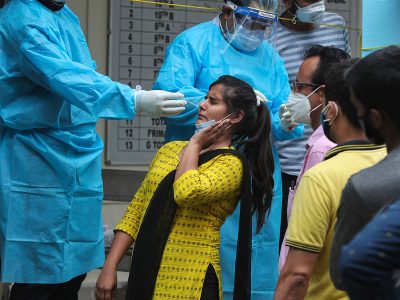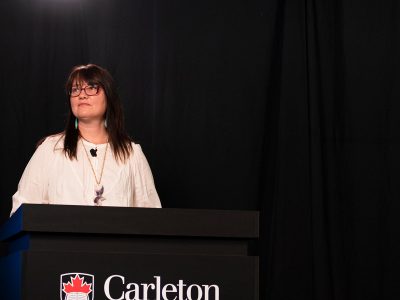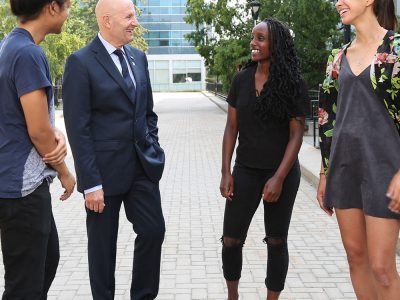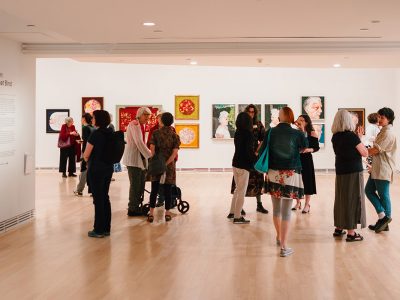By Elizabeth Murphy
Photos by Chris Roussakis
Raging forest fires that engulf communities and massive flooding that wreaks havoc and destroys public infrastructure. These natural disasters are traumatizing and recovery is challenging; complications from these events can be especially detrimental to the mental and physical health of those living in rural and northern Indigenous communities. With the increasing fallout from climate change, preparing for natural disasters becomes all the more pressing.
To address this, 23 undergraduate students from a variety of disciplines at Carleton University came together Friday, Nov. 16, 2018 to compete in the 2018 One HEALtH (Human Environment Animal Links to Health) Student Challenge, presenting comprehensive frameworks to work with communities to mitigate mental and physical health impacts of disasters.
Organized by the Canadian Health Adaptations, Innovations and Mobilization (CHAIM) Centre – in partnership with the Royal’s Institute of Mental Health Research and Carleton’s Discovery Centre – it was the second annual challenge. The One Health initiative aims to foster collaborations across multiple disciplines to address multi-faceted health issues at the local, national and global levels.
“The challenge and opportunity of a One Health approach is that it uses an integrated and holistic approach to a health issue, which is not usually taught as part of a medically-oriented curriculum,” said Prof. Kim Matheson of the Department of Neuroscience and director of the CHAIM Centre.
“With One Health, students take a broad-based interdisciplinary approach to addressing a global health problem.”
Paired with graduate student mentors, the teams were presented with the challenge of designing a plan to mitigate physical and mental health risks and facilitate community rebuilding, with a particular focus on First Nations communities in Canada’s northern regions.
“Three different areas are touched on by this topic,” said Matheson. “Climate change and its impacts, the reconciliation agenda and what is happening in First Nations, and that health isn’t just physical – it’s intrinsically linked with mental health.
“It’s also important to not focus on a single perspective – this project had the teams coming together with a range of perspectives on an issue.”
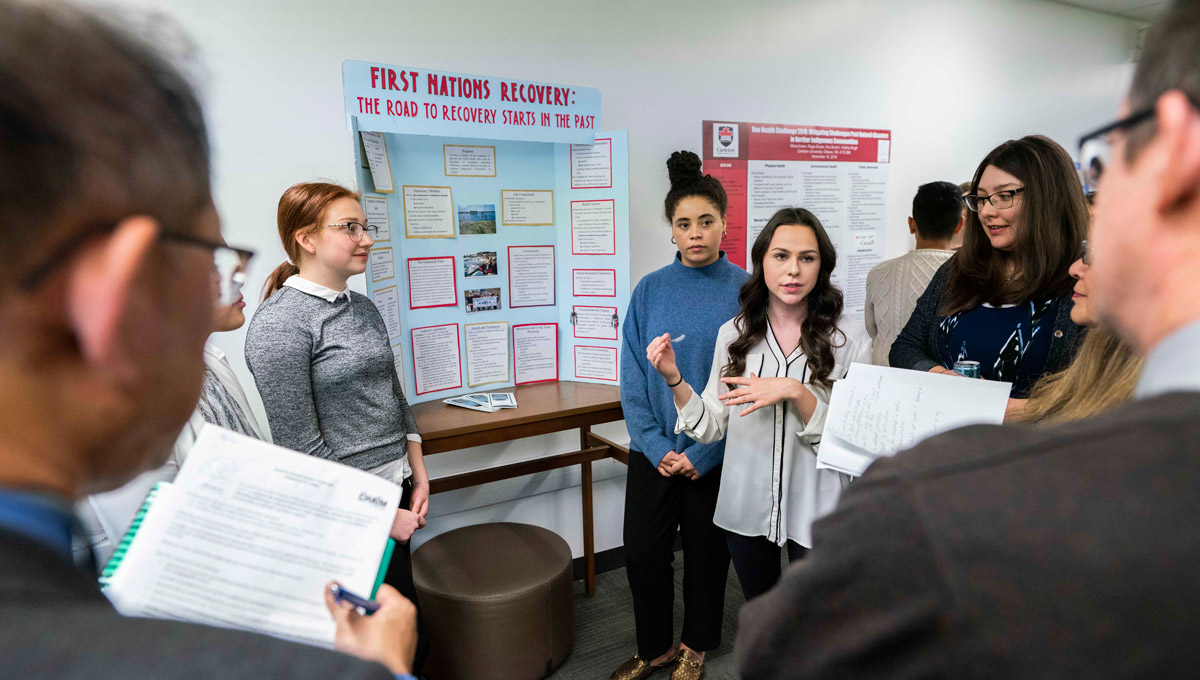
Recognizing the Unique History, Culture and Customs of Indigenous Communities
Taking this innovative approach, the mitigation plans needed to recognize myriad intersections that impact health, be it risks associated with damaged infrastructure, animal welfare (both domestic pets and wildlife), or environmental factors. Students took into account the supports and infrastructure available to remote and northern Indigenous communities.
Student plans also recognized the unique history, culture and customs of Indigenous communities and the need for frameworks to be appropriate and respectful of traditional practices and community strengths.
As part of the planning process, students had opportunities to consult with experts from a variety of fields to inform their frameworks.
More Interesting Reads
- Understanding Indigenous Land Claims
- Fish Research Links to Indigenous Heritage
- Students from Nunavut Visit Carleton for Imagine Architecture Program
As consultation with Indigenous communities is essential, frameworks were focused on defining the issue and designed to be responsive to community engagement and local leadership.
Challenge judges Anita Olsen Harper, a researcher of Indigenous education and health, Pascal Michel, chief science officer of the Public Health Agency of Canada, and Thomas Wong, chief medical officer of Public Health and executive director at Indigenous Services Canada, evaluated the five projects.
In addition to the main prize, Michel and Wong expressed their interest in inviting some participants to take part in a speaker seminar organized by the Public Health Agency of Canada.
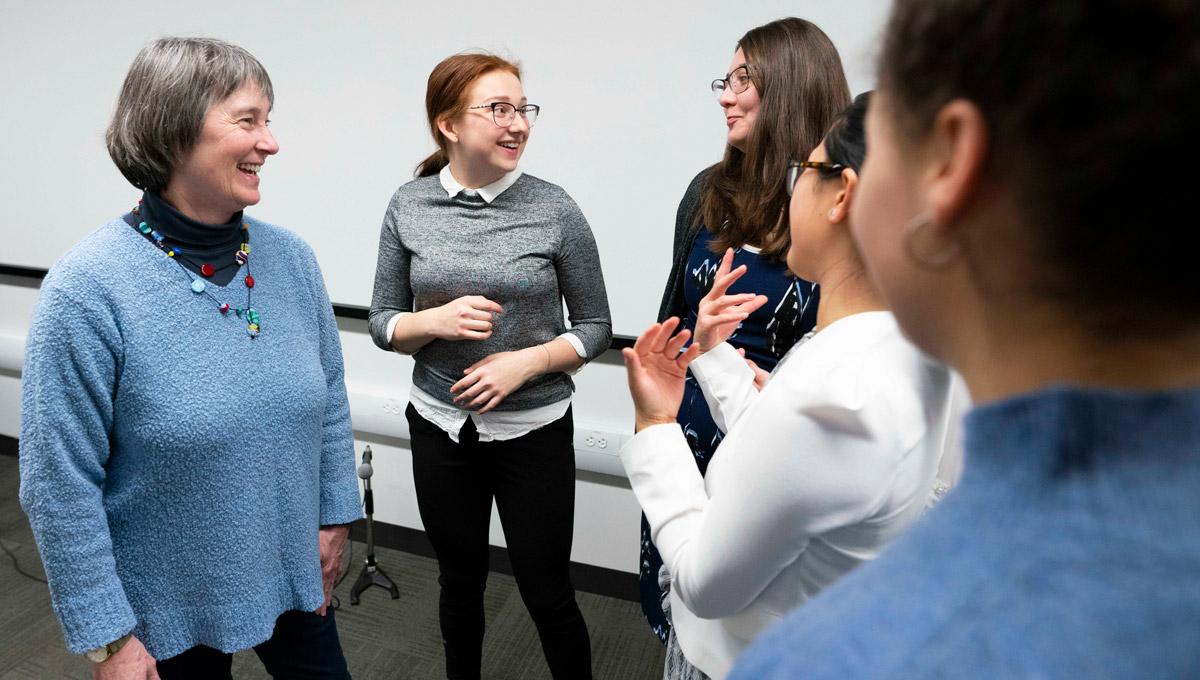
Finding the Road to Recovery in the Past
After deliberation, the judges commended the students for their impressive work and announced the team comprised of second-year Neuroscience students Jane Curtis and Mia Moroz, second-year Health Sciences student Kate Dervin and fourth-year Neuroscience student Kamaya Lawrence, as the winners with their project First Nations recovery: the road to recovery starts in the past.
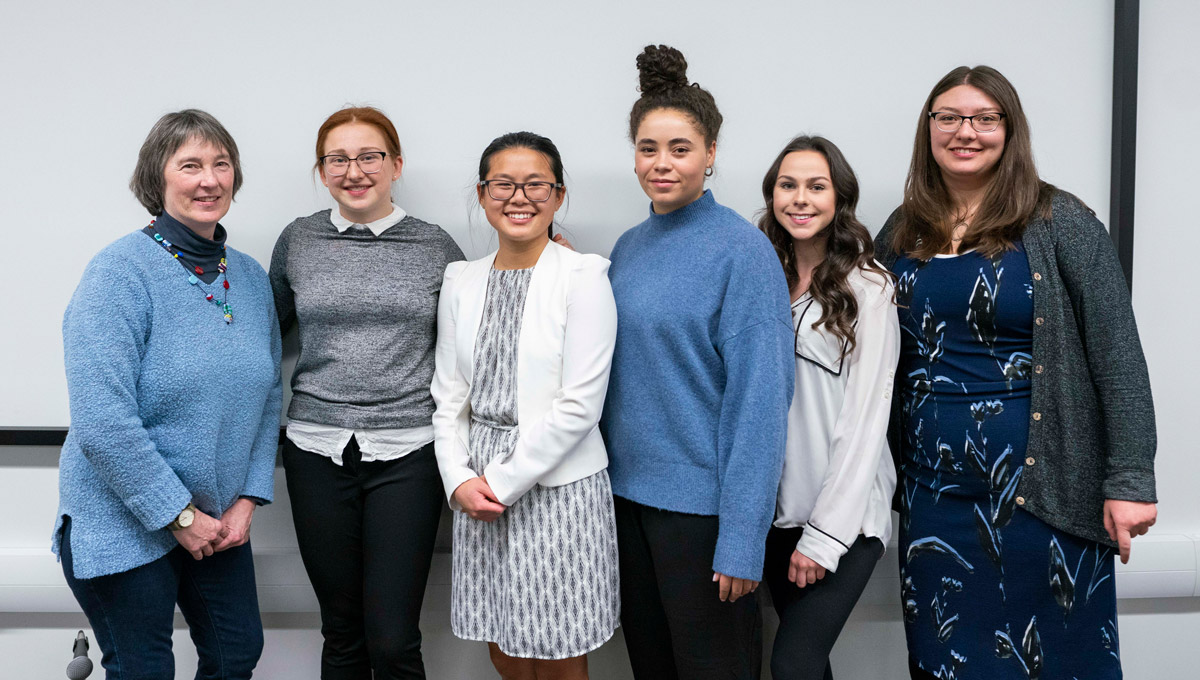
From left to right: Prof. Kim Matheson, Jane Curtis, Mia Moroz, Kamaya Lawrence, Kate Dervin, and Mentor Roxana Barbu.
“Our biggest thing – of course, with the title – is that it starts in the past,” said Curtis, noting that approaching the project with the necessary mindset of recognizing community autonomy and ensuing Indigenous control of the plan and resources was integral.
Their winning framework laid out “immediate” and “continuous” responses and mitigation strategies.
Immediate responses would include ensuring everyone is safe and providing for basic needs, while continuously building off those into long-term plans and preventative strategies, said Curtis.
Each of the winning team members will be awarded a paid internship under the supervision of a faculty researcher in their discipline.
“It’s an amazing opportunity to get involved in the research that we are passionate about,” said Lawrence.
Tuesday, November 20, 2018 in Faculty of Science, Neuroscience, Research
Share: Twitter, Facebook
